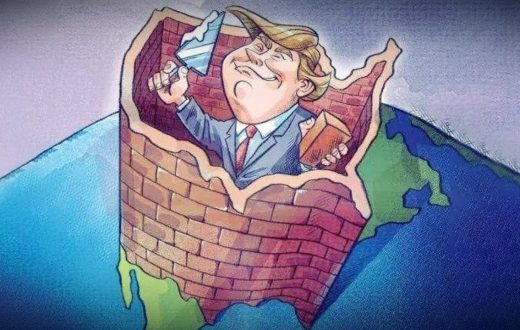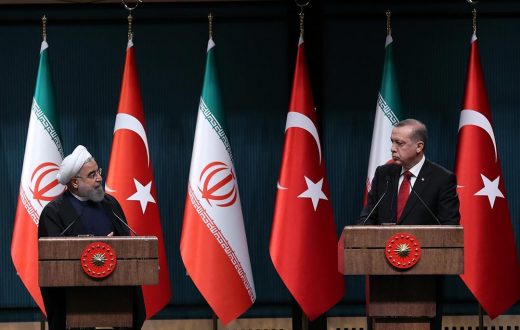Preventing an Arctic cold war
By: Rosa Sejer Ingstrup Knudsen
For information about the Ilulissat Declaration and the current situation in the Arctic region please read part I on “How to use the Ilulissat Declaration as inspiration to desecuritize future policy issues in the Arctic region”
Recommendations:
In the following segment four recommendations on how to desecuritize future policy issues in the Arctic region. The Ilulissat Declaration will be used as inspiration and serve as the foundation for the recommendations that has been put forward in this segment.
- Cooperation in international forums:
Based on the Ilulissat Declaration it is advised that different international institutions establish the “overall” rules of behavior for states, businesses and individuals (The members of the Arctic Council met at the Arctic Ocean Conference to create of the Ilulissat Declaration).
These newly agreed upon set of rules will be used when states interact with each other on Arctic related matters. Therefore it would be ideal to follow the mindset of the Ilulissat Declaration and utilize institutions to create and uphold the rules as well as to help keep the common domains open and free.
- The Copenhagen way:
This recommendation follows a theory named “The Copenhagen School” created by Ole Wæver, where states seek to prevent a policy issue from being securitized by moving the issues from the realm of security and back to “normal politics”.
This was what was done with the Ilulissat Declaration. It moved the policy issue of arctic-sovereignty from a question of state security over to “normal politics” making the policy issues about areas such as marine environmental research and protection.
It is therefore recommended to move a policy issue stemming from events in the arctic back to normal politics. For example by moving the issue of sovereign rights delineation into another socio-political domain that is not seen as a ‘hot potato’.
Furthermore, it would be beneficial to redirect the “security discourse” associated with the issue at hand on to a more compelling issue that has already been desecuritized for example by moving the states’ wish to dominate and protect future sea routes with their own military to the area concerning all states’ general use of the sea and freedom of navigation.
- Make it a non-issue:
A long the lines of the Copenhagen School, it is recommended that the politicians, bureaucrats and strategists do not talk about the issues in terms of security and insist that it is a non-security issue. In the Ilulissat Declaration the Arctic five representatives declared that the law of the seas provide rights and obligations on non-security issues such – as mentioned before – marine environmental research and protection. The declaration is an effort to de-escalate and make the sovereign claims of the Arctic a non-issue to signal to the rest of the world that it is not the beginning of an Arctic cold war. This too can be done with future policy-issues.
Furthermore, it is advisable to downgrade the issue at hand by redefining it as not being a threat to the state’s security interests. By doing so, it adds to help move the policy issues back to ”normal politics” (it is worth to notice that this strategy only works on issues that has yet to be securitized).
- Minimize symbolic politics:
Military power-projection can – in the wake of political tensions – arise as a byproduct of other states’ ships patrolling and general activities to exploit natural resources in or near contested areas. An example was when Russia increased its maritime activities as well as flew bombers over the area near Denmark’s territory. This act of symbolic politics has added to maintaining a concern about increased military security, which can lead to uncertainty and result in an arms race, which is undesirable.
Therefore the last recommendation is to refrain from using symbolic politics and focus on creating a shared understanding on how to collectively navigate the region. The Ilulissat declaration did not allow symbolic politics and its purpose is to act as a legal framework.
By de-escalating and insisting on making a legal framework to address and deal with future policy-issues without symbolic politics, they automatically de-securitize and diminish the security concern making it about more than just an arms race and a battlefield for states to fight for more power.








